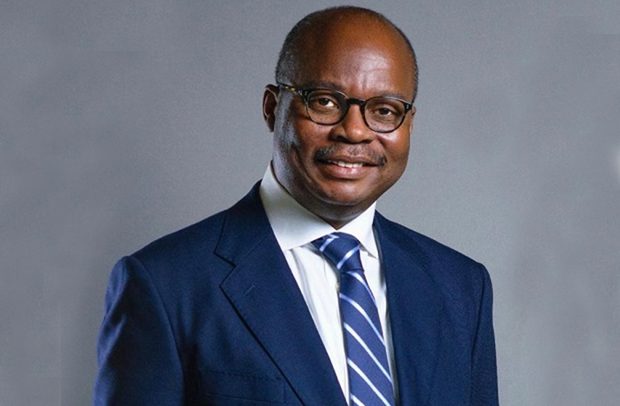Dr. Ernest Addison
Governor of the Bank of Ghana (BoG), Dr. Ernest Addison, has dismissed allegations of central bank mismanagement that resulted in a GH¢60 billion loss last year, asserting that the loss is a technical one arising from the haircut and the application of accounting standards.
His defence followed criticism from some Ghanaians, including the leader of the opposition National Democratic Congress (NDC), John Dramani Mahama, who referred to him as a “pliant governor” seeking to cover-up his mismanagement.
“An incompetent Finance Minister damages the economy and uses COVID-19 and Ukraine/Russia war as cover-ups. A pliant Governor destroys the Central Bank and seeks to use the Domestic Debt Exchange (DDE) as a cover,” the NDC flagbearer asserted.
The Minority Leader, Dr. Cassiel Ato Forson, also called for his immediate resignation as well as his deputies.
Dr. Addison, on the other hand, has rejected the claims of mismanagement, pointing out that the loss recorded by the central bank is a technical one resulting from the haircut and the application of accounting standards (IFRS 9) to estimate expected credit losses over the tenor of the government debt held by the bank.
Addressing the media in Accra yesterday, he indicated that the loss should be viewed as a representation of the cumulative cost of the country’s economic and social challenges over the years, as well as “an attempt to resolve a major structural problem of the Ghanaian economy.”
Historical Perspective
He stated that the bank’s historical financial statements show that this is not the first time the bank has gone into negative equity, citing the periods of 2017 and 2018 when BoG incurred similar negative equity from the impairment of legacy liquidity support loans granted to insolvent banks in 2015 and 2016.
“During the early years of structural adjustment, very large exchange rate depreciations led to revaluation losses that drove the bank into negative equity. Indeed, anytime the economy faces major challenges, the Bank of Ghana’s balance sheet suffers, and the equity position moves into negative territories,” he noted.
Dr. Addison, however, stated that the central bank recovered and earned profits from 2019 to 2021.
“It is worth noting that central banks are not commercial banks,” he stated, emphasising that the Bank of Ghana’s current financial condition will not have a negative impact on the bank’s operations.
He stated that the International Monetary Fund (IMF) Technical Assistance mission validated this conclusion prior to making the necessary decisions, adding, “In their opinion, the Bank of Ghana was policy solvent and would remain so, as it had enough income to cover monetary policy operational costs.”
He said that BoG had sufficient capital equal to around 15% of its total liabilities, and that the IMF’s advice was for the bank to keep all profits and evaluate in 2027.
“The Bank will also manage to reduce its operational costs during this period,” Dr. Addison solemnly pledged, and added that the bank has “acted within the applicable laws.”
He also refuted reports that the central bank has been funding the government on a yearly basis, claiming that there has been no financing in 2017, 2018, 2019, or 2021.
According to him, the bank has only had to assist in the pandemic year of 2020 and the crisis year of 2022, citing the Bank of Ghana Act (612), as amended, which limits government financing to 5% of the preceding year’s tax income.
“This provision in the law has been adhered to since I took office in April 2017. Between 2017 and 2019, in addition to the requirements of the Bank of Ghana Act (612), as amended, the Bank signed a Memorandum of Understanding (MoU) with the Ministry of Finance to even impose a tighter restriction of zero central bank financing, and this was observed strictly, even though MoUs are not legally binding,” Dr. Addison intimated.
He stated that between 2012 and 2015, the Bank of Ghana granted overdraft to support the government and COCOBOD every year, and there was no epidemic or global economic crisis.
“When Ghana was hit with the COVID-19 in 2020, Section 30(6) of the Bank of Ghana Act (612), as amended, was triggered, and as indicated earlier, the Bank purchased GH¢10 billion worth of COVID-19 bonds to support the economy through the pandemic,” he said.
By Ernest Kofi Adu


